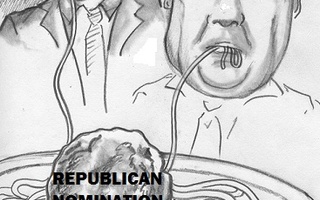Are humans selfish beings or is our first impulse to be cooperative?
In a Nature article published on Sept. 20, researchers in Harvard’s Program for Evolutionary Dynamics proffered a solution to this age-old question of human nature. Researchers focused on solving this puzzle spanned many disciplines.
The group includes David G. Rand, a postdoctoral fellow in psychology, social sciences professor Joshua D. Greene ’96, and professor of mathematics and biology Martin A. NowakThese researchers developed a “public goods game” in which subjects were offered two options: to keep the money they were given or to contribute it to a pool that would be allocated for the group’s benefit.In an effort to simulate intuitive and deliberative responses, subjects were either asked to act immediately or to contemplate their decisions.
“When people have the chance to respond to others, is their first response altruistic or to have self-control?” asked Rand.
The researchers found that subjects’ first impulses were cooperative, while deliberation led to actions based in self-interest.
However, researchers cautioned that the study’s results were more indicative of subjects’ experiences rather than innate human characteristics.
“It might be easy to jump to the conclusion that cooperation is innate or hardwired,” said Rand. “We are not showing that at all, but rather that your intuition is shaped by your experiences in the world; if you grow up in a cooperative environment, you will be more cooperative, and if you grow up in an uncooperative environment, that will likely be your initial response.”
The scientists also discussed potential applications of their work, suggesting that emotional appeals to the masses may be more effective than logical ones, because logical arguments can cause people to act more selfishly.
Rand cautioned against the prevailing modes of leadership training.
“The executive educational system that trains individuals to make decisions in a rational and unbiased way may actually have unintended consequences and make people more selfish."
—Staff writer Fatima Mirza can be reached at fmirza@college.harvard.edu.
Read more in News
Lab Rat of the Week: Ryan R. Christ '13, Model-Builder at HeartRecommended Articles
-
CAPS AND GOWNSOnly five Seniors have as yet signed up for caps and gowns at the Cooperative. It is absolutely necessary that
-
The Coop—a “Cooperative?”Currently, some books, like Professor N. Gregory Mankiw’s “Principles of Economics” are offered for almost $100 less on Amazon.com than they are at the Coop. Certainly, the Coop has to pay expensive overhead costs that online retailers simply don’t have to consider, and we understand that the circumstances are different.
-
Study Finds Correlation Between Belief in God and Cognitive StyleThere exists a correlation between an individual’s belief in God and his or her cognitive style, suggests a study by Harvard researchers published in the Journal of Experimental Psychology: General on Monday.
-
Defending the CoopI was disappointed to read a recent Crimson editorial staff article, “The COOP- a Cooperative?”, mostly because of the mistakes in reporting and complete lack of knowledge about cooperatives in general and the COOP in particular.
-
Study on Cooperation Finds Subjects OnlineLooking to study cooperation in action, a team of Harvard social scientists opted to forgo the all too familiar practice of hiring hordes of undergraduates and Cambridge residents as test subjects.
-
 2016 Here We Come
2016 Here We Come













